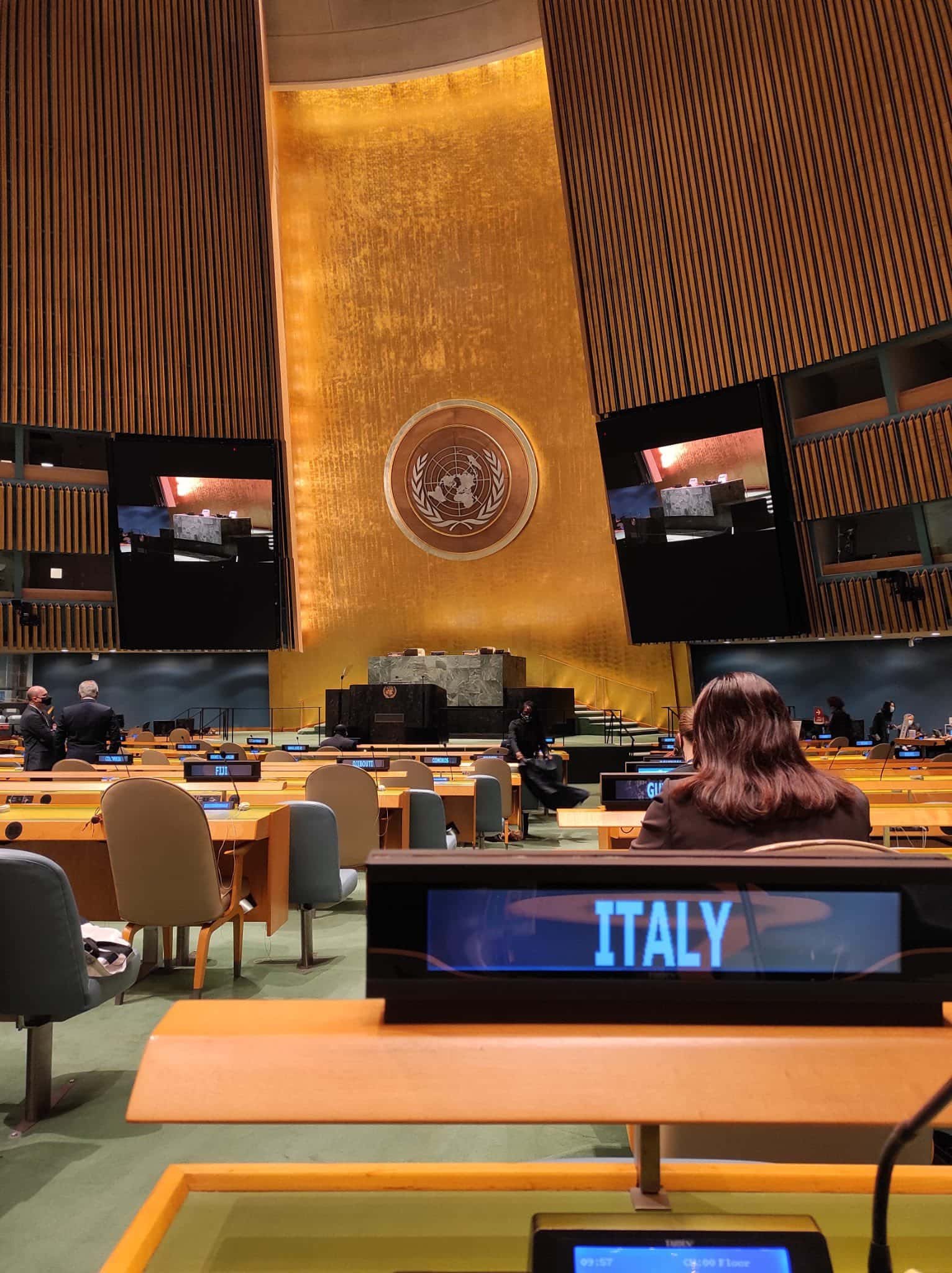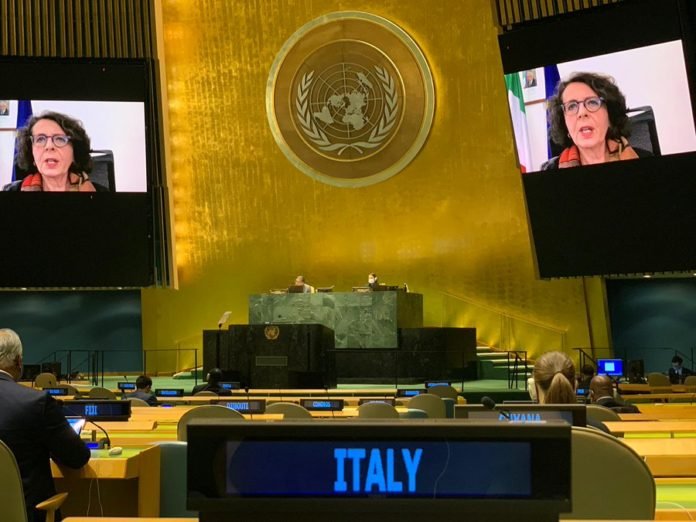
The Secretary General Antonio Guterres opened the yearly event calling for a “paradigm shift” aligning the private sector with the global goals is needed to address the challenges of the future, including those triggered by COVID-19.
Secretary-General António Guterres painted a grim picture of the past year during which more than three million have died from the virus. Around 120 million have fallen into extreme poverty and the equivalent of 255 million full-time jobs have been lost. He noted that as the speed of infections is increasing, “the crisis is far from over”.
Sereni stated that “overcoming the pandemic is a precondition for a stable and everlasting recovery”. Italy “recognizes the role of the Covid 19 vaccination as a global public good. Health is a far reaching priority. The Global Health Summit to be held in Rome on May 21 will be an opportunity to discuss pandemic preparedness and to relaunch to relaunch the spirit of
collective effort that initiated the ACT-Accelerator, virtuous example of what the international community can do together when faced with an urgent global threat”, she said. Sereni also highlighted that strengthening coordination between bilateral and multilateral providers of climate finance is essential to enhance access to financing resources. The Italian G20 Presidency has sought consensus to further step up the support to vulnerable countries as they address the challenges associated with the COVID-19 pandemic.
To set the course for a sustainable and resilient COVID response and recovery, Guterres called for urgent action in six areas, beginning with closing the funding gap of the UN-backed vaccine initiative, COVAX. “To end the pandemic for good, we need equitable access to vaccines for everyone, everywhere”, he said. He also called for development assistance, to go primarily where it is most needed.
The debt crisis needed to be properly addressed, he said, including “debt suspension, relief, and liquidity”. But “we need to go beyond debt relief”, Guterres continued, urging a strengthened “international debt architecture to end the deadly cycles of debt waves, global debt crises and lost decades”.
Investing in a new social contract, based on solidarity in education, green jobs, social protection, and health systems was the UN chief’s fifth priority action, which he maintained was “the foundation for sustainable and inclusive development”. (@OnuItalia)

